Potassium carbonate
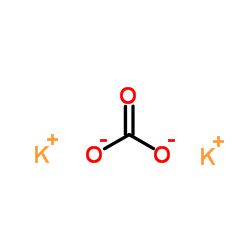
Potassium carbonate structure
|
Common Name | Potassium carbonate | ||
|---|---|---|---|---|
| CAS Number | 584-08-7 | Molecular Weight | 138.21 | |
| Density | 2.43 g/mL at 25 °C | Boiling Point | 333.6ºC at 760 mmHg | |
| Molecular Formula | CK2O3 | Melting Point | 891 °C(lit.) | |
| MSDS | Chinese USA | Flash Point | 111ºC | |
| Symbol |

GHS07 |
Signal Word | Warning | |
Use of Potassium carbonateAnhydrous potassium carbonate, 99.995% metals basis is a biochemical reagent that can be used as a biological material or organic compound for life science related research. |
| Name | Potassium carbonate |
|---|---|
| Synonym | More Synonyms |
| Description | Anhydrous potassium carbonate, 99.995% metals basis is a biochemical reagent that can be used as a biological material or organic compound for life science related research. |
|---|---|
| Related Catalog | |
| In Vitro | Potassium carbonate 具有广泛的工业和研究应用。碳酸钾的主要用途是制造化学品、化肥、肥皂和玻璃。它用作溶剂的干燥剂,特别是在存在痕量酸的情况下,以及用作有机合成中产生的酸的清除剂。它在葡萄酒生产过程中用作缓冲剂。它也被用作灭火器中的灭火剂。在有机合成中,它是广泛用于碳、硫、氮和氧中心的烷基化和芳基化反应的试剂。它还用于醛醇缩合、Michael 反应、酰化、Wittig 反应、Knoevenagel 反应、消除反应、环氧树脂开环、循环、金属催化的交叉偶联反应、水合和多种反应。 |
| Density | 2.43 g/mL at 25 °C |
|---|---|
| Boiling Point | 333.6ºC at 760 mmHg |
| Melting Point | 891 °C(lit.) |
| Molecular Formula | CK2O3 |
| Molecular Weight | 138.21 |
| Flash Point | 111ºC |
| Exact Mass | 137.912155 |
| PSA | 63.19000 |
| InChIKey | BWHMMNNQKKPAPP-UHFFFAOYSA-L |
| SMILES | O=C([O-])[O-].[K+].[K+] |
| Storage condition | Store at RT. |
| Stability | Stable. Incompatible with moisture, acids, magnesium bromine trifluoride and magnesium bromine trichloride. |
| Water Solubility | 1120 g/L (20 ºC) |
CHEMICAL IDENTIFICATION
HEALTH HAZARD DATAACUTE TOXICITY DATA
MUTATION DATA
|
| Symbol |

GHS07 |
|---|---|
| Signal Word | Warning |
| Hazard Statements | H302-H315-H319-H335 |
| Precautionary Statements | P261-P305 + P351 + P338 |
| Personal Protective Equipment | dust mask type N95 (US);Eyeshields;Gloves |
| Hazard Codes | Xn:Harmful |
| Risk Phrases | R22;R36/37/38 |
| Safety Phrases | S26-S36-S37/39 |
| RIDADR | 3262 |
| WGK Germany | 1 |
| RTECS | TS7750000 |
| Packaging Group | III |
| HS Code | 2836400000 |
| Precursor 10 | |
|---|---|
| DownStream 10 | |
| HS Code | 2836400000 |
|---|
|
In vitro inhibition of lysine decarboxylase activity by organophosphate esters.
Biochem. Pharmacol. 92(3) , 506-16, (2014) Organophosphate esters (OPEs), a major group of organophosphorus flame retardants, are regarded as emerging environmental contaminants of health concern. Amino acid decarboxylases catalyze the convers... |
|
|
Study on the phase I metabolism of novel synthetic cannabinoids, APICA and its fluorinated analogue.
Drug Test. Anal. 7(2) , 131-42, (2015) The data are reported for an in vitro metabolism study of two novel synthetic cannabinoids, N-(1-adamantyl)-1-pentyl-1H-indole-3-carboxamide (APICA) and its fluorinated analog N-(1-adamantyl)-1-(5-flu... |
|
|
Lung deposition and cellular uptake behavior of pathogen-mimicking nanovaccines in the first 48 hours.
Adv. Healthc. Mater. 3(7) , 1071-7, (2014) Pulmonary immunization poses the unique challenge of balancing vaccine efficacy with minimizing inflammation in the respiratory tract. While previous studies have shown that mice immunized intranasall... |
| MFCD00011382 |
| POTASH |
| Pearl dust |
| EINECS 209-529-3 |
| PEARL ASH |
| dipotassium carbonic acid |
| K-Gran |
| Kaliumcarbonat |
| alt of wormwood |
| Montreal potash |
| SALT OF TARTAR |
| K2CO3 |
| Sal absinthii |
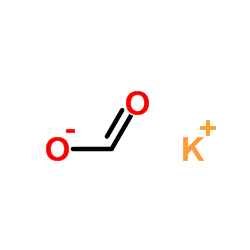 CAS#:590-29-4
CAS#:590-29-4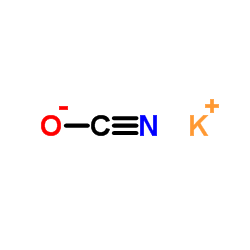 CAS#:590-28-3
CAS#:590-28-3 CAS#:6487-48-5
CAS#:6487-48-5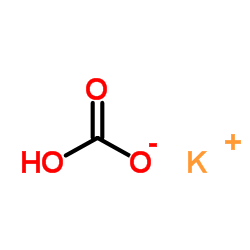 CAS#:298-14-6
CAS#:298-14-6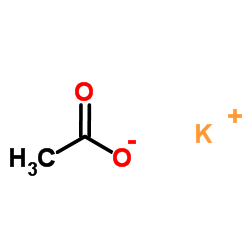 CAS#:127-08-2
CAS#:127-08-2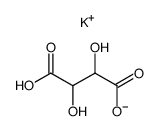 CAS#:147-78-4
CAS#:147-78-4 CAS#:676-47-1
CAS#:676-47-1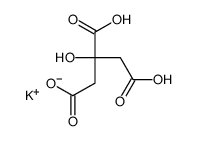 CAS#:866-83-1
CAS#:866-83-1 CAS#:497-19-8
CAS#:497-19-8 CAS#:124-38-9
CAS#:124-38-9 CAS#:109991-32-4
CAS#:109991-32-4![N-[4-(quinolin-2-ylmethoxy)phenyl]acetamide structure](https://image.chemsrc.com/caspic/180/105326-63-4.png) CAS#:105326-63-4
CAS#:105326-63-4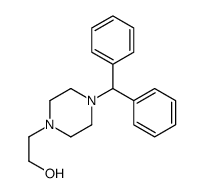 CAS#:10527-64-7
CAS#:10527-64-7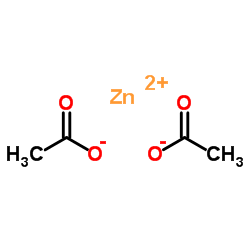 CAS#:557-34-6
CAS#:557-34-6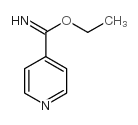 CAS#:41050-96-8
CAS#:41050-96-8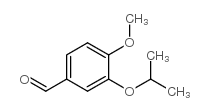 CAS#:34123-66-5
CAS#:34123-66-5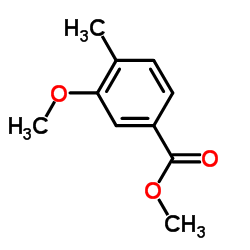 CAS#:3556-83-0
CAS#:3556-83-0 CAS#:22071-15-4
CAS#:22071-15-4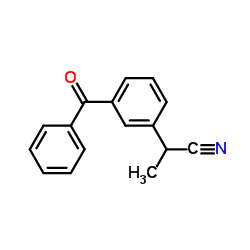 CAS#:42872-30-0
CAS#:42872-30-0 CAS#:542-52-9
CAS#:542-52-9
